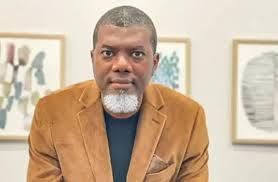We often hear that life is all about the choices we make, but the truth is far more complex. Many of the most fundamental aspects of our existence are beyond our control. We don’t choose our parents, siblings, or the DNA that shapes who we are. We don’t get to select the color of our skin, the country we’re born in, or the socioeconomic conditions into which we arrive. Even our religious beliefs are often inherited, deeply influenced by the culture and environment we grow up in. If you were born in Saudi Arabia, for example, you’re far more likely to be a Muslim; this isn’t a decision you made, but a consequence of geography and culture.
These circumstances—the ones that shape so much of our lives before we even take our first breath—are not of our choosing. Some people are born into privilege, with access to wealth, education, and opportunities. Others are born into hardship, facing poverty, discrimination, or the horrors of war from the moment they enter the world. These uncontrollable factors set the stage for our lives, creating advantages for some and obstacles for others.
Recognizing the limits of our choices is essential because it helps us cultivate empathy and understanding for others. When we acknowledge that so much of what defines us is not chosen but given, we become more compassionate, less judgmental, and more supportive of one another. This understanding allows us to see the world through the eyes of others and to appreciate the diversity of human experience.
However, while many aspects of our lives are beyond our control, there are crucial choices that we do have the power to make—choices that ultimately determine the course of our lives. These decisions are within our control and carry significant weight in shaping our futures.
We choose our friends and the people we surround ourselves with. The company we keep can influence our thoughts, behaviors, and values, either lifting us up or dragging us down. The saying “You are the average of the five people you spend the most time with” is a testament to this. Our friends, mentors, and colleagues play a pivotal role in shaping our worldview and aspirations. By choosing to spend time with people who inspire, challenge, and support us, we can elevate our potential and push ourselves to achieve greater things.
Conversely, if we surround ourselves with negative influences, people who discourage growth, or those who reinforce destructive habits, we may find ourselves stagnating or even regressing. The power of association is a choice we must make consciously, understanding that the people around us can either be our greatest assets or our biggest liabilities.
Beyond our social circles, we also have the choice of whether to develop our minds, to question the world around us, and to seek knowledge, or to passively accept the information handed to us. In an age where information is abundant and easily accessible, the decision to be a lifelong learner is more critical than ever. We can choose to read, explore new ideas, and educate ourselves, broadening our horizons and enhancing our ability to think critically. This choice empowers us to navigate the complexities of the modern world, making informed decisions that align with our values and goals.
On the other hand, choosing ignorance—whether through complacency or a deliberate avoidance of challenging ideas—limits our growth and narrows our perspective. The choice to educate ourselves, to think critically, and to challenge the status quo is one that has far-reaching consequences. It influences our ability to adapt to change, to innovate, and to contribute meaningfully to society.
We also choose who we marry, how many children we have, and how we raise them. These decisions shape the intimate fabric of our personal lives and have lasting impacts on future generations. The decision to marry is one of the most significant choices we make, as it influences our emotional well-being, our support system, and even our long-term happiness. The choice of a life partner is not just about love or companionship; it’s about finding someone whose values, goals, and vision for the future align with our own. It’s about building a life together that reflects mutual respect, understanding, and shared aspirations.
Similarly, the decision to have children—and how many to have—carries profound responsibilities. Parenthood is a choice that comes with the duty to nurture, guide, and support the next generation. The way we raise our children, the values we instill in them, and the opportunities we provide will shape their future and, by extension, the future of society. These choices require careful consideration, as they affect not only our lives but also the lives of those who come after us.
We also have the power to choose whether we want to be creative or stagnant, to explore new ideas and push boundaries, or to remain in our comfort zones. Creativity is a choice that requires courage—the courage to step into the unknown, to take risks, and to express ourselves authentically. It’s about daring to innovate, to challenge conventions, and to bring new ideas to life. Creativity is not limited to the arts; it’s about thinking differently, finding new solutions to old problems, and continuously seeking improvement in whatever we do.
On the flip side, we can choose to remain stagnant, to stick with what’s comfortable and familiar, avoiding the discomfort of growth and change. This choice may feel safe, but it often leads to a life of unfulfilled potential and missed opportunities. By choosing creativity and embracing the unknown, we open ourselves up to a world of possibilities and the chance to make a meaningful impact.
Another crucial choice we make daily is whether to be kind or cruel, to build others up or tear them down. Kindness is a choice that reflects our values and our humanity. It’s about recognizing the dignity and worth of every person and choosing to treat them with respect and compassion. Kindness has a ripple effect; a single act of kindness can inspire others, create a positive atmosphere, and foster a sense of community and belonging. It’s a choice that costs nothing but can change everything.
Cruelty, on the other hand, is a choice that stems from fear, insecurity, or a desire for power. It dehumanizes others and creates division, pain, and suffering. The choice to be cruel may bring temporary satisfaction, but it ultimately leads to isolation, resentment, and a fractured society. By choosing kindness, we contribute to a world where empathy and understanding prevail, where differences are celebrated, and where people feel valued and supported.
In essence, life is a delicate balance between accepting the things we cannot change and taking responsibility for the things we can. It’s about understanding that while we may not have chosen our starting point, we have the power to influence our journey. The decisions we make about how we treat others, how we react to challenges, and how we pursue our goals are the choices that define us.
This balance between fate and free will should inspire both humility and empowerment. Humility, because we recognize that much of what we are was given to us. Empowerment, because within that framework, we still possess the power to shape our destiny. By making conscious, deliberate choices—by choosing empathy, understanding, and compassion—we can build lives of meaning and contribute to a world that is more just, more kind, and more connected.
Ultimately, while the circumstances of our birth may set the stage, it is our choices that write the script. We may not choose where we begin, but we can certainly choose where we go from here. Let us strive to make choices that reflect the best of who we are and who we aspire to be. In doing so, we not only shape our own lives but also contribute to the broader story of humanity, making the world a better place for all.



























